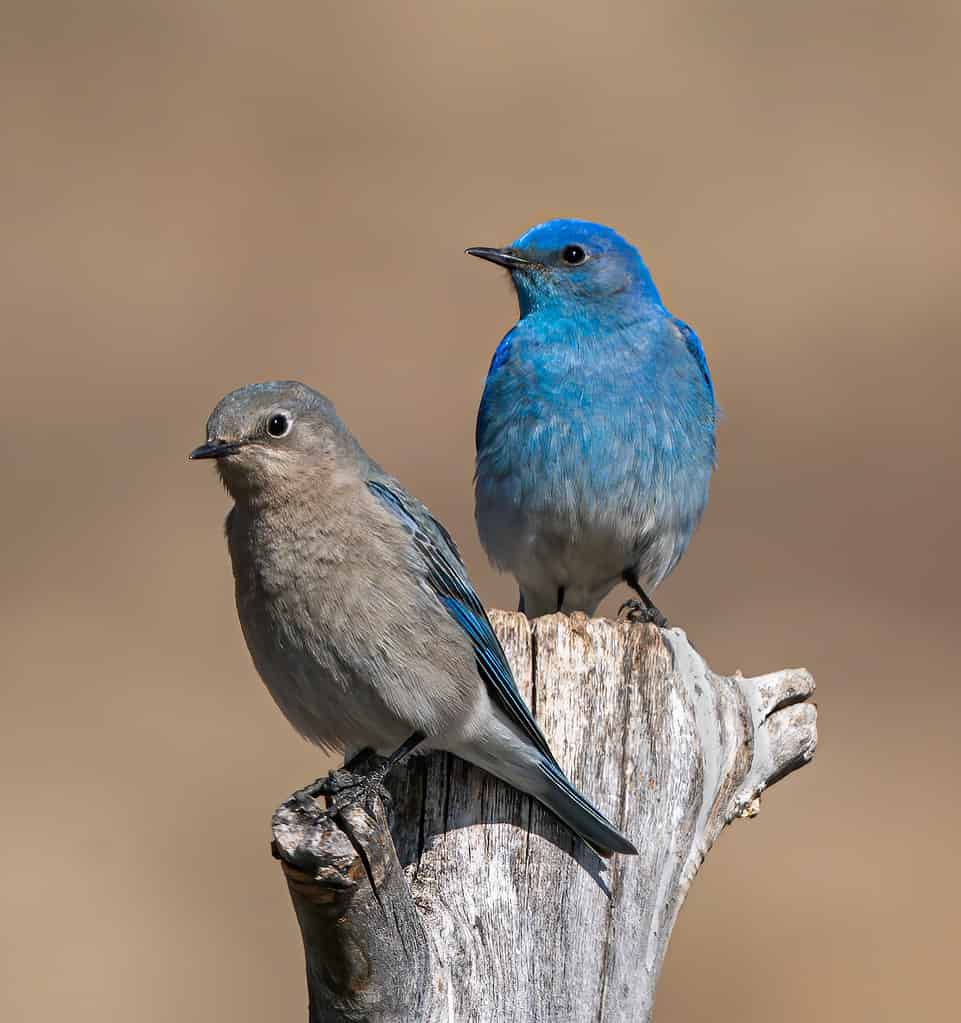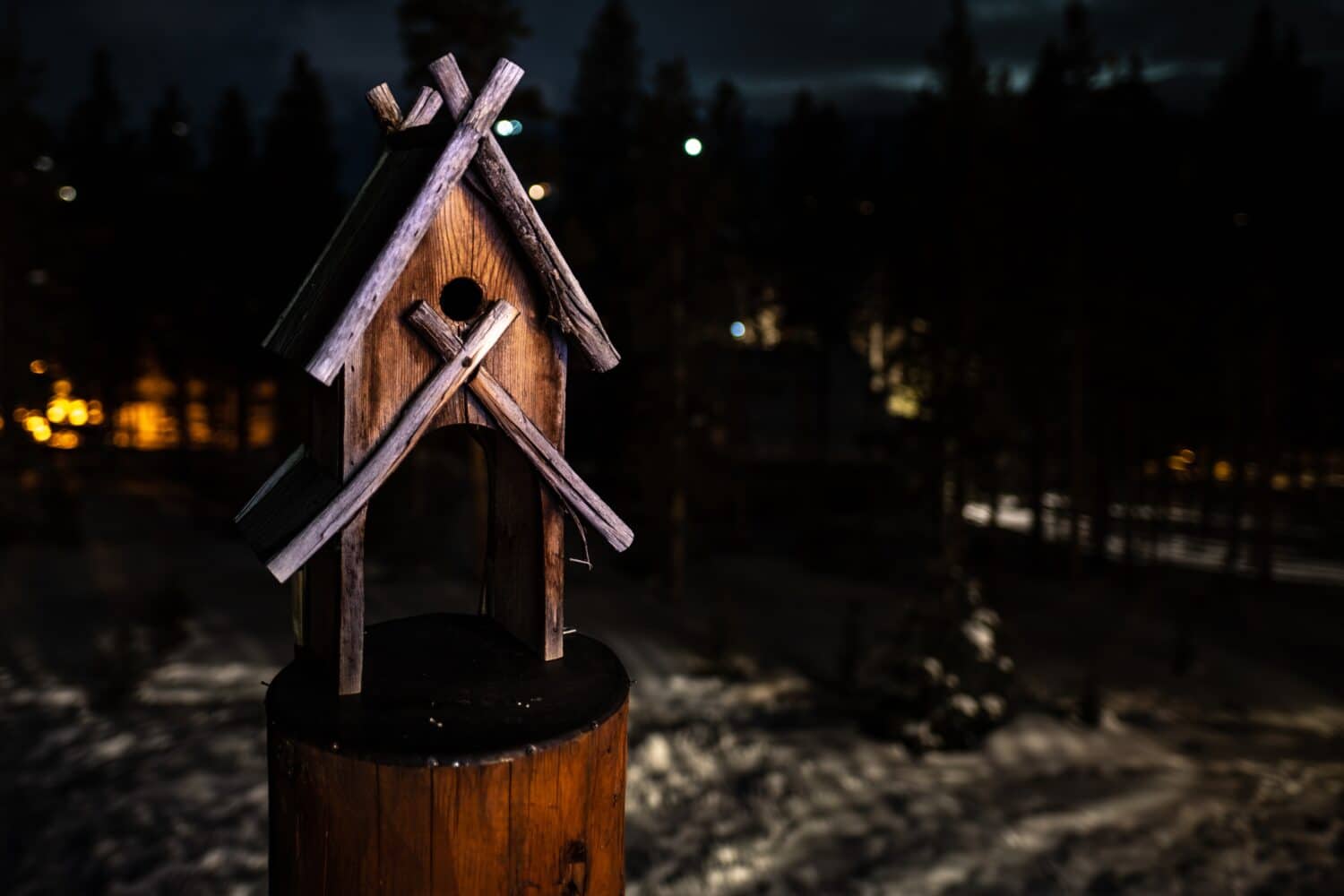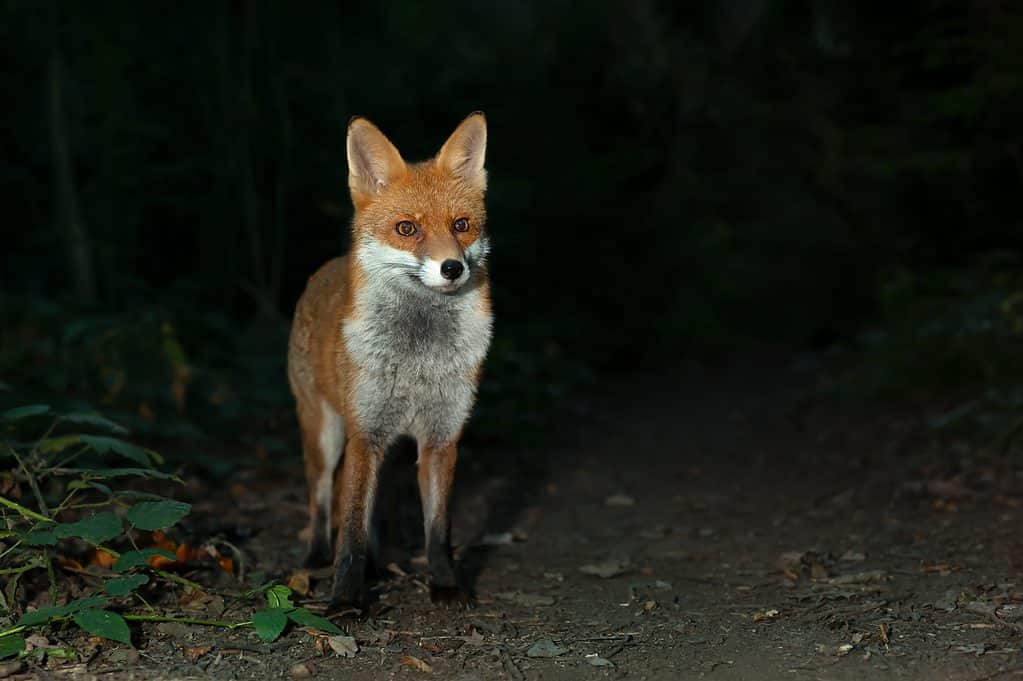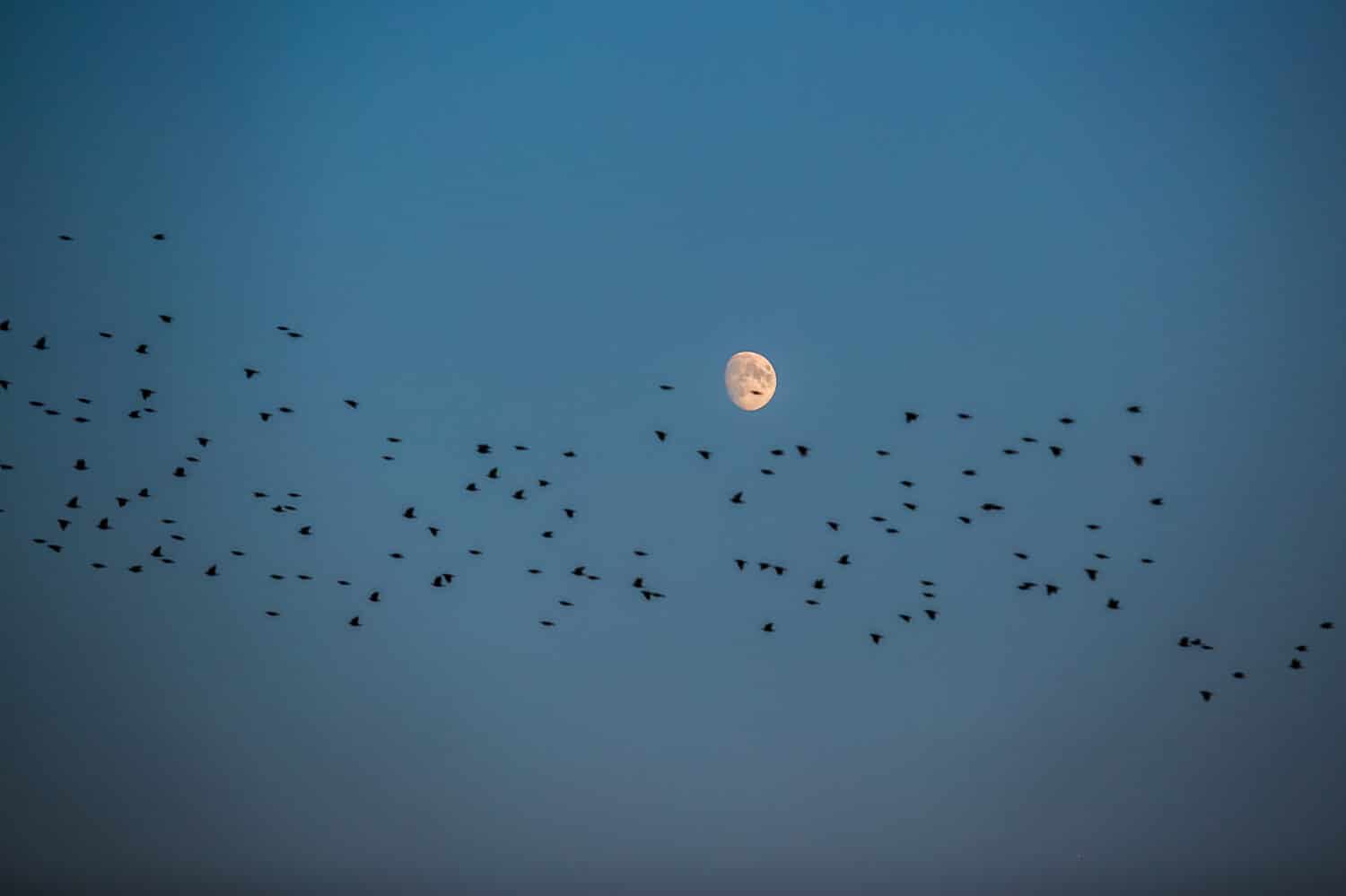If you’re out in the wilderness at night, you may see bats, mosquitoes, and other flying creatures. However, it’s pretty uncommon to see birds at night, aside from owls and other nocturnal species. If you’re wondering why that is, keep reading to learn about what birds do after dark.
Diurnal and Nocturnal Birds
Most species of birds are diurnal, meaning they are active during the day and sleep at night. Only about 30% of birds are nocturnal — active at night. These species include owls, nighthawks, and night herons amongst others that are most active after dark.
For this article, we’ll be focusing on the majority — diurnal birds that sleep at night. Since you don’t usually see or hear bluebirds at 2 a.m., you may wonder where they go when the sun goes down.

Bluebirds are active during the day and usually sleep throughout the night.
©Richard Seeley/Shutterstock.com
Discover Common Sleeping Spots
Diurnal birds have a knack for finding shelter wherever they go. Many species roost in dense foliage and cavities in trees. They roost high off the ground where they are safe from most predators. Sometimes birds will sleep alone, and other times they may cluster together, especially on colder nights. Smaller species of birds rest closer to the tree trunks, which hold the sun’s warmth for a longer time.
Birds also will take advantage of birdhouses and nesting boxes if they are available. A birdhouse or box can make for a fun way to view nature and provide a safe nightly home for birds around you. Birds are much more likely to nest where they know they’ll have food and water, so keep that in mind if you’re wanting to do some bird spotting.
Bird species that live in the water, like ducks and geese, will float on the water to sleep. To keep themselves safer, they usually float in large groups. Other water birds like wading birds, including flamingoes and herons, will sleep in the water while standing. Birds that float or stand in the water to sleep can feel for movements around them and take off if they sense danger. Both the water and their tendency to sleep in groups give these species an extra layer of protection at night.

Birdhouses and nesting boxes provide excellent cover for birds to sleep in at night.
©Mike Radtke/Shutterstock.com
Do Birds Sleep in Nests?
While you may assume that birds sleep in nests, aside from baby birds and their mothers, most birds don’t. Birds usually only use nests for incubating eggs and caring for the hatched babies. After the nesting season ends their nests are left dirty and often have mites or other issues. Birds are neat creatures and will not return to a home that is dirty. This includes nesting boxes and birdhouses as well.
When Do Birds Sleep?
Like humans, birds are active during the daytime and sleep at night. They follow the schedule of the sun a bit closer than we do though. Most birds go to their sleeping place once it starts to get dark and don’t leave until sunrise. Nocturnal predators like foxes and raccoons can be big threats to birds if they aren’t in a safe sleeping location.
In cities, birds may have different sleeping patterns. Like us, they are affected by artificial light, so streetlights and other lights may throw off their sleeping habits.

Birds are typically in their sleeping places by sundown to avoid nocturnal predators like the red fox.
©Giedriius/Shutterstock.com
Birds Take Naps?
Birds don’t only sleep at night, they take naps throughout the day too. They even take short naps while they are flying! This is because of the unique way that birds are able to sleep. Birds engage in unihemispheric slow-wave sleep, which basically means they keep one eye open. Half of their brain is fully engaged in sleep, and the other half is completely alert. This allows them to quickly react to danger. Only a few types of migrating birds are able to engage in USWS, like the magnificent frigatebirds that nap while migrating across the ocean.
What Else Do Birds Do at Night?
You may have heard birds singing at night or early in the morning. This is because nighttime is a great time to broadcast their message and be heard loud and clear. Noise from humans and cars is significantly less, so birds can be heard more easily. They sing for the same reasons at night as they do during the day. Most birds sing to attract mates, keep predators away, or establish their territories.
Sometimes birds that are diurnal will migrate at night. They do this for a few different reasons. First of all, nighttime is safer for smaller bird species that can be targeted by daytime predators. Sparrows and thrushes typically migrate at night for this reason. Also, birds use the stars for navigation, so migrating at night can keep them on the correct path.

Some birds migrate at night to stay safe from predators.
©Lioneska/Shutterstock.com
The photo featured at the top of this post is © iStock.com/SteveByland
Thank you for reading! Have some feedback for us? Contact the AZ Animals editorial team.







